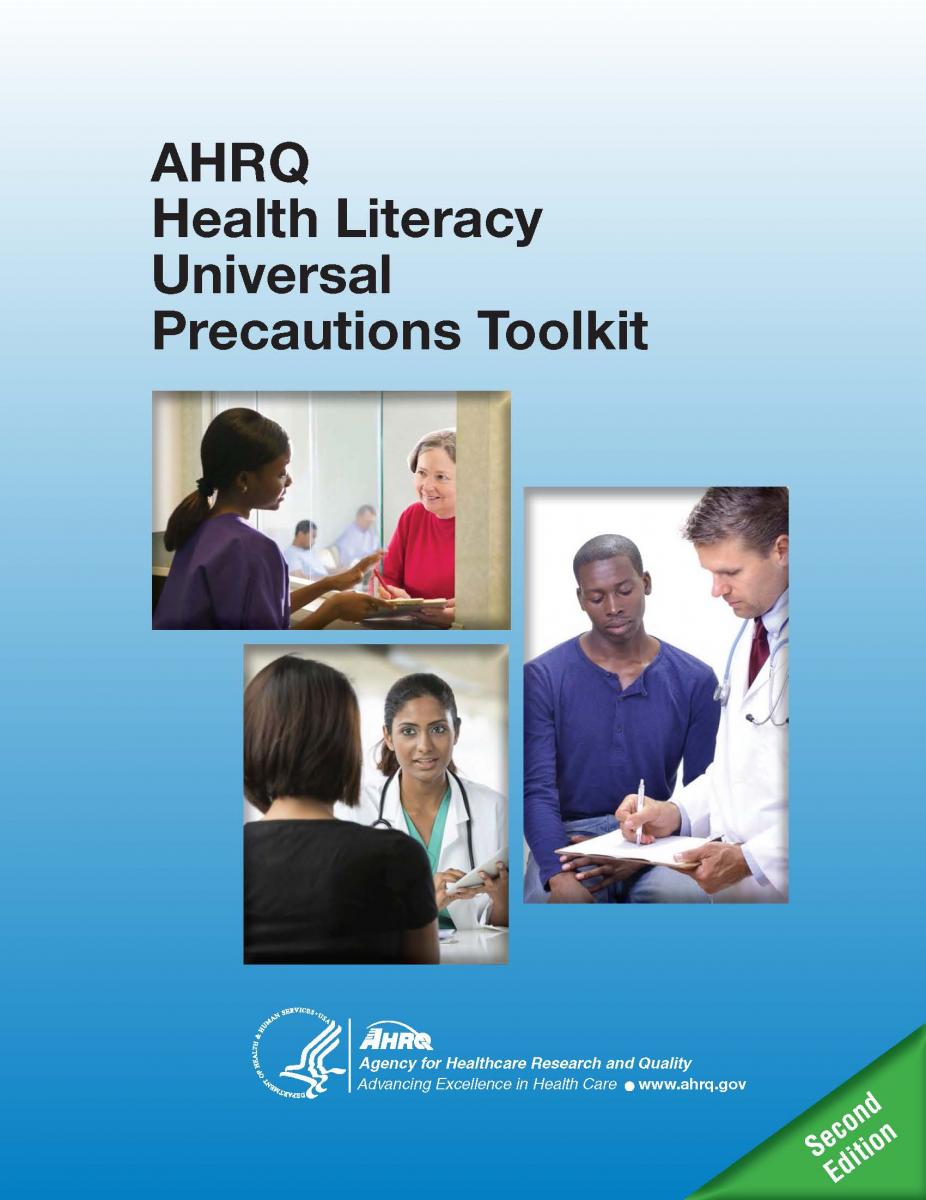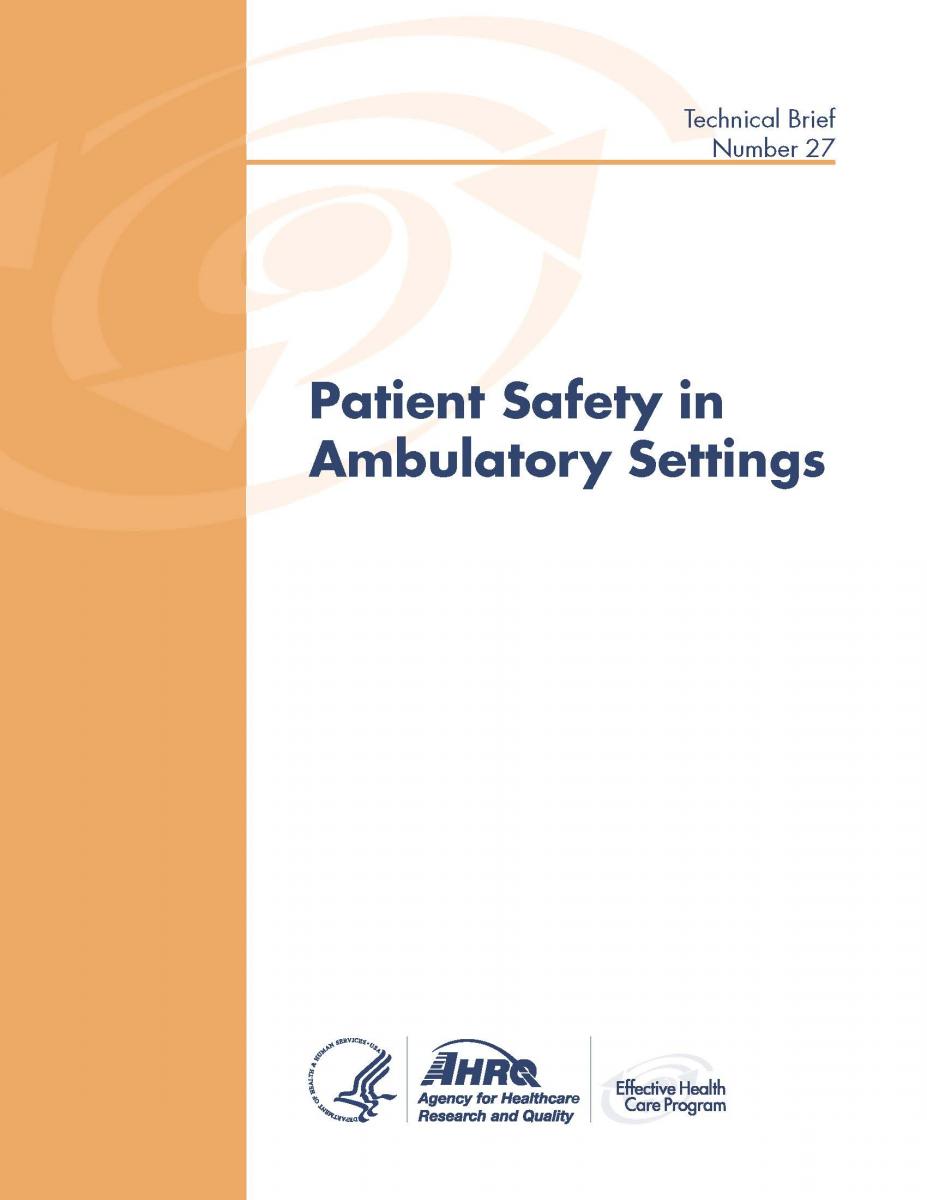Ambulatory Care
AHRQ is committed to improving the safety and quality of ambulatory care in the United States. Ambulatory care is care provided by health care professionals in outpatient settings. These settings include medical offices and clinics, ambulatory surgery centers, hospital outpatient departments, and dialysis centers.
The scope of ambulatory care has expanded over the past decade, as the volume and complexity of interventions have expanded. Safe, high-quality ambulatory care requires complex information management and care coordination across multiple settings, especially for patients with chronic illnesses.
AHRQ's resources and tools improve the safety and quality of ambulatory care. They enhance the reliability of laboratory testing in medical offices; establish a culture of patient safety; improve the safety of care transitions; and identify techniques, tools, and strategies for clinicians to improve teamwork and performance. The Agency's resources also identify promising ambulatory care patient safety initiatives.
Ambulatory Surgery Center (ASC) Survey on Patient Safety Culture is a survey in the suite of AHRQ Surveys on Patient Safety Culture. The survey, designed specifically for ASC staff, asks for opinions about the culture of patient safety at their centers. The survey can raise staff awareness about patient safety, assess the status of patient safety culture, identify strengths and areas for improvement, examine trends, evaluate the cultural impact of patient safety initiatives and interventions, and conduct comparisons within and across organizations.
 The CAHPS® Clinician & Group Survey assesses patients' experiences with health care providers and staff in doctors' offices. Survey results can be used to improve care and equip consumers with information to choose providers.
The CAHPS® Clinician & Group Survey assesses patients' experiences with health care providers and staff in doctors' offices. Survey results can be used to improve care and equip consumers with information to choose providers.
The Community-Acquired Pneumonia Clinical Decision Support Implementation Toolkit helps clinicians and clinical informaticians in primary care and other ambulatory settings implement and adopt the community-acquired pneumonia (CAP) clinical decision support alert to identify the severity of a patient’s CAP and determine the appropriate site of care to manage it.
The Guide to Improving Patient Safety in Primary Care Settings by Engaging Patients and Families is an ongoing project that offers four interventions and four case studies designed to improve patient safety by meaningfully engaging patients and families in their care.
 The Health Literacy Universal Precautions Toolkit, 2nd Edition can help primary care practices reduce the complexity of health care, increase patient understanding of health information, and enhance support for patients of all literacy levels.
The Health Literacy Universal Precautions Toolkit, 2nd Edition can help primary care practices reduce the complexity of health care, increase patient understanding of health information, and enhance support for patients of all literacy levels.
Improving Your Office Lab Testing Process Ambulatory Toolkit increases the reliability of the lab testing process within a medical office with step-by-step guidance. Includes checklists and materials to help communicate with patients.
The Medical Office Survey of Patient Safety Culture is designed for outpatient medical office providers and staff. It asks their opinions about the culture of patient safety and health care quality in their medical offices.
Patient and Family Engagement in the Surgical Environment features slide sets, facilitator notes, guides, tools, and videos help staff of ambulatory surgery centers engage patients and families in their care.
 The Technical Brief for Patient Safety in Ambulatory Settings explores fundamental questions about patient safety practices in ambulatory care and identifies promising safety initiatives.
The Technical Brief for Patient Safety in Ambulatory Settings explores fundamental questions about patient safety practices in ambulatory care and identifies promising safety initiatives.
The Safety Program for End-Stage Renal Disease Facilities Toolkit helps end-stage renal disease clinics prevent healthcare-associated infections in dialysis patients by following clinical practices, creating a culture of safety, using checklists and other audit tools, and engaging with patients and their families. The toolkit includes four instructional modules that a facilitator can use to teach dialysis center team members specific ways to create a culture of safety.
TeamSTEPPS® for Office-Based Care adapts the core concepts of the TeamSTEPPS program to reflect the environment of office-based medical teams. It offers techniques, tools and strategies to assist health care professionals develop and optimize team knowledge and performance in an office-based setting.
 The Toolkit to Improve Safety in Ambulatory Surgery Centers helps ambulatory surgery centers (ACSs) make care safer for patients. ASCs can use the toolkit to apply the principles and methods of AHRQ's Comprehensive Unit-based Safety Program to prevent surgical site infections and other complications and improve safety culture in their facilities. Topics in the toolkit include teamwork and communications, coaching clinical teams, patient and family engagement, and sustainability.
The Toolkit to Improve Safety in Ambulatory Surgery Centers helps ambulatory surgery centers (ACSs) make care safer for patients. ASCs can use the toolkit to apply the principles and methods of AHRQ's Comprehensive Unit-based Safety Program to prevent surgical site infections and other complications and improve safety culture in their facilities. Topics in the toolkit include teamwork and communications, coaching clinical teams, patient and family engagement, and sustainability.
A Toolkit to Engage High-Risk Patients in Safe Transitions Across Ambulatory Settings provides strategies, tools, and education to help staff who work in ambulatory care facilities prepare patients for new and follow-up appointments in order to prevent errors during transitions in care.



